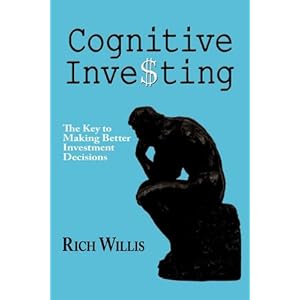The short saga of Facebook stock performance during its brief life as a public company has provided a valuable opportunity for self-directed investors to learn some extremely valuable lessons about investing. It is unfortunate that most of them will let this opportunity slip by, and they will go on to make similar errors again and again.
The first and most important lesson is to understand the difference between investing and gambling. An investor seeks the returns associated with productivity of a particular asset. A gambler seeks short-term capital gains, hoping that he can buy an asset for one price and sell it to someone else at a higher price, frequently paying little attention to the intrinsic value of the underlying asset. The odds are stacked against gamblers, since gambling is at best a zero-sum game in which one investor’s gain is another’s loss. In practice, it is a negative-sum game due to transaction costs. On the other hand, investing is a positive-sum game, but it takes a much longer time to realize the gains from a productive asset. Appropriate time frames for successful investments are measured in years, not days.
This distinction between investing and gambling is poorly understood and many people and organizations with vested interests, such as the financial media, would prefer to keep it that way. The cover story of the Wall St. Journal on May 30, 2012, “Investors Bet on Facebook Fall,” illustrates this confusion. The article should be entitled, “Gamblers Bet on Facebook Fall.” Much of what passes for investment is really nothing more than gambling. Guessing the short-term direction of interest rates, stock prices, commodity prices, etc., are simply gambles, and referring to them as investments is misleading at best and delusional at worst.
Many of the individual investors participating in the Facebook IPO were seeking a short-term capital gain, looking for the “pop” that has occurred with other IPOs, when the stock closed significantly higher than its offering price on the first day of public trading. Others erroneously thought that Facebook stock would behave like Google or LinkedIn stock after their IPOs, in which their stock prices never traded below the offering price and appreciated significantly afterwards. So what went wrong with the Facebook IPO?
There are plenty of guilty parties for investors to blame, so that they can avoid blaming themselves for a flawed investment decision-making process. They can blame Nasdaq, which screwed up the trading mechanics during the first several hours. They can blame the underwriters who selectively told some institutional clients about Facebook’s lowered financial projections, but did not inform retail investors. They can blame Facebook itself for issuing too many shares at too high a price. But the real blame should go to the person they see in a mirror.
They thought there was easy money to be had. They thought they would be able to buy at one price and quickly sell it to a “bigger fool” at a higher price. And then they learned who the “bigger fool” really was.
Some people have no problem with the idea of gambling. But they should understand against whom they are gambling to properly assess their chances of winning. When amateurs and professionals compete, the professionals almost always win. They did this time as well.
How about the argument that Google and LinkedIn investors were extremely successful and therefore Facebook would follow a similar path? This is a great example of what psychologists call the availability heuristic. This occurs when people assess probabilities by overweighting easily recalled information instead of processing all relevant information. The Wikipedia entry, http://en.wikipedia.org/wiki/Availability_heuristic describes this bias in much more detail and provides some great food for thought. The Google and LinkedIn cases were actually quite different from Facebook’s in timing, size, amount of media hype, and almost every other parameter one could choose. A more appropriate question would be to ask about the success of all IPOs. It does not take very much research to learn that most IPOs trade lower than their offering prices in the year subsequent to their IPO. In other words, the odds are heavily stacked against you, so expecting to be one of the few exceptions is simply wishful thinking. An effort to “get rich quick” will much more likely end up being a way to “get poor even quicker.”
Another lesson to learn involves the difference between familiarity and expertise. Just because someone has been an avid Facebook user for many years, it does not make him an expert on how Facebook stock will behave, any more than being able to cook a gourmet meal qualifies someone to open a restaurant. The relationship between a company’s progress and the trajectory of its stock price is not nearly as linked as one might assume. If you are going to buy an IPO, learn about how the IPO process works, not just a bit about the company going public. If you are going to buy an individual stock, understand your chances of success in the task of picking stocks, not just some financial ratios about the company of your interest. In short, invest your time in a proper education about the investment decision-making process before investing your money in the most visible investment du jour.
